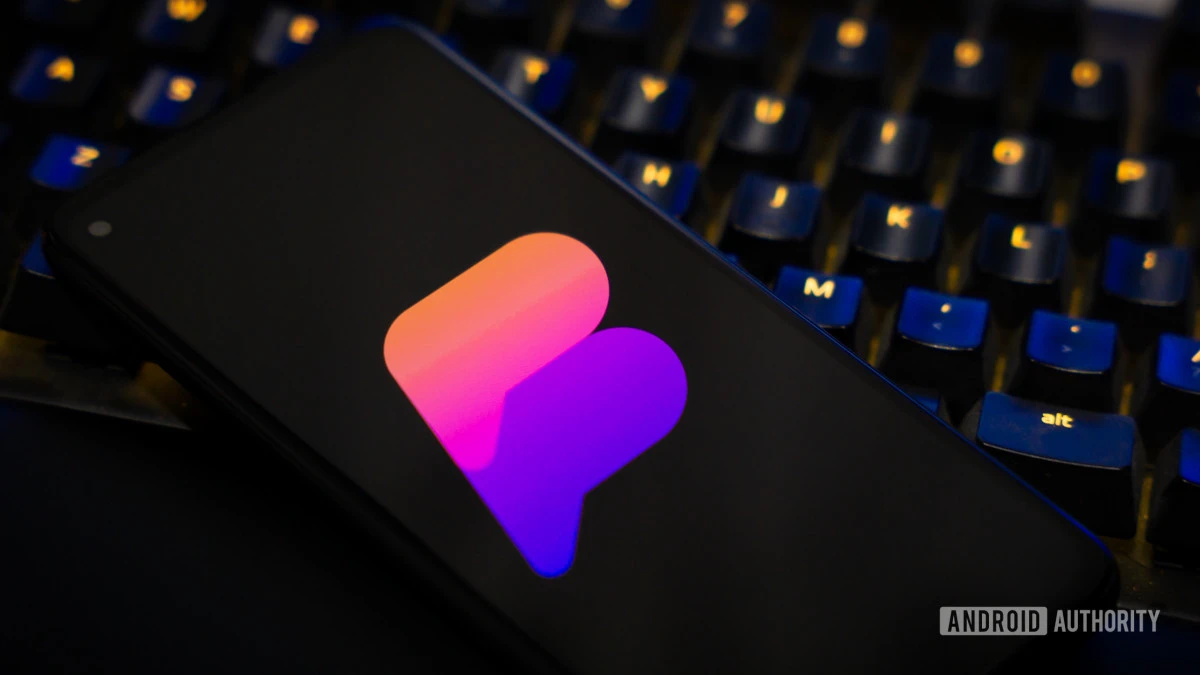I mostly blame Apple for walling off the default text messaging app on the iOS platform. It is ridiculous to me that we are over 10 years into the smartphone era and are stuck in a duopoly with two players that would rather degrade communications between platforms than prioritize interoperability for some base level functionality. I hope that Beeper’s campaign forces regulation that puts an end to the insanity.
Why not go whinge to Google to develop a messaging system that Apple users want to integrate with…
They did. RCS. And it sounds like Apple will be adopting it due to regulatory pressure. But the idea of “Apple users will want to integrate with” has a flaw. A lot of their userbase happily drinks the Kool-aid and want their walled garden, even if it’s not in their best interest.
Maybe there is no kool-aid and it is just better, hence why these apps exist. As you said, RCS is coming yet people still aren’t happy. It sounds like Google can’t make a decent messaging app and is mobilising it’s user base to force the issue instead of innovating
Remember when Android was entirely open source?
Test
Good. I can’t wait to stop hearing about this app and their stupid feud with Apple.
You don’t need iMessage. Your iFriends need RCS. Beeper is not the solution.
It is a really nice app though. I have never even used the iMessage feature.
I’ll do one better, I’ve been a beeper (not beeper mini) beta tester for a while, and I’ve had uninterrupted imessage access through their older method which never had a single outage!
I imagine though they have been using a method like spinning up virtual mac machines or matrix bridge to get it to work.
either way it is by far my favorite messaging app, I’m so damn tired of all these companies walling their messaging service into some enclosed garden while everyone I know decides that THEIR favorite app is the one everyone should be using.
And while they wait for RCS, they can just install Signal. Signal works and is funded by a non-profit who puts in more work to know as little as possible about you than any other company/org out there.
i dont want to download another app to talk to one person
Fair, let me buy a new phone to talk to one person instead.
fair. anyone who doesn’t want to install Signal can reach me via text/SMS or RCS. those are the options.
Can signal interact with SMS? I felt like I had issues with that when I used it a couple years ago. May have been me.
@rhythmisaprancer @ijeff @Chozo @KLISHDFSDF @sour
pretty sure they removed sms support
I wish there was like a way to just have a 1-to-1 voice conversation with someone on my phone and it be universally supported across all phones.
Like a telephone call?
Yeah, like a telephone call. But, not a telephone call.
Isn’t a telephone call supported on all phones? If it isn’t, then nothing is.
Oops, I did not add a “/s” because, I assumed both yours and the comment you had replied to were sarcasm. I missed the question mark on your comment. Phone calls are universal on every device supporting a compatible network (2G, LTE, 5G, etc).
Unfortunately Signal, unlike Telegram, breaks when I uninstall google play services.
weird, works on my de-google’d OnePlus 6T running Android 13
get the signal apk from their website instead of downloading with aurora store
It doesn’t for me? I run it on Graphene without google play services. You just have to turn off battery optimization, but it’s very reasonable in its battery usage. I’ve been off battery for 18 hours, and am at 81% on my Pixel 8. Signal is at less than 1% of battery use, and it still will be in a few days when I’m ready to charge, unless I use it significantly on my phone. But I mostly use it from my laptop, and just get notifications on my phone, so probably not.
In contrast, K9 Mail is at around 3%, it’s running at battery optimized, and I haven’t opened it at all.
RCS is also not a solution
so what? an merger between iMessage, RCS and mms?
We need a standard that’s recognized just like sms. It shouldn’t need any special server from some company
Settling for RCS means no E2EE. It’s also handing control over messaging back to carriers (or most likely, Google, because not many carriers have RCS servers) which is a step backwards.
For all of Apple’s many many faults, iMessage is a pretty good service once you pay the Apple tax to get in.
It’s also handing control over messaging back to carriers
I don’t really see any issue in this, as RCS was meant as an upgrade of the SMS protocol. Moreover, as the smartphone market is now pretty much a duopoly between Google and Apple, and pretty much what is not Apple is Google, it was natural for Google to also come up with an alternative to iMessage of theirs. Because that’s what it is currently. I’m surprised Apple accepted to implement RCS after all because of this tbh.
Imo, both Google, Apple could have worked with the major carriers to implement a solution like this over GSM (and not requiring you to use mobile data). For me, that’s the advantage of the SMS over any IM app out there (including Matrix, XMPP etc.): you’re not required to turn on your data in order to use it. It’s just right there. For the current implementations of RCS/iMessage respectively, I don’t see any advantage over just using WhatsApp or Facebook Messenger for example.
Carriers wanted RCS because WhatsApp and iMessage were taking away their ability to charge by the text more than anything. I think they all dropped their subscription model by now, but no doubt they’ll start charging you when you use the more advanced features of RCS (i.e. uploading 500MB files).
Google did come up with an alternative: Google Talk, then Hangouts, then Allo, then Google Chat, and I think I missed one or two. Unfortunately, Google employees only get promoted by launching new products, so every chat team wants to launch something new, and that’s why every year Google launches a new messenger.
Nobody I know uses SMS because carriers here still charged by the SMS five years ago. MMS has been turned off entirely by the largest carriers around. Why would I pay 5 cents per message, or €3 extra for unlimited text, when I could just use the data plan I already have for free? Messages cost kilobytes of data, fractions of a cent.
As for the evolution of SMS: SMS was free at first, then relatively cheap, because it used empty space in the GSM standards allocated for basic message passing. Someone noticed that there was some leftover capacity and thought they may as well use it for a small feature. Then once people started using it, this stuff stayed in.
MMS (the part where you send anything more than 140 characters to a single phone number) is using your data connection. Well, it’s actually using a separate data connection, but it’s all packeted, like RCS is. That’s why SMS works when you have a single bar of reception, but MMS struggles.
As of LTE/4G, everything is packeted networking. Phone calls (over VoLTE) are no longer directly routed audio links, they’re voice (or video, but nobody seems to implement that part) streams over a network connection. VoWiFi (WiFi calling) is basically a VPN tunnel with two audio streams inside it. A true 4G successor of SMS would he RCS, except you’d need a separate APN that normal applications couldn’t use to reach an internal IP address that’s not accessible over the internet.
Like how MMS is entirely optional for carriers to provide, so is RCS. That’s why Google runs their own servers. For the majority of people, they need Google’s servers because their carrier doesn’t offer RCS services. They basically took a component intended to be run by carriers only and said “fuck it, we’re a carrier now”.
There can be advantages to RCS if your carrier has a server you can use, but if you’re using Google Jibe, there’s not much, really. In theory Google could expose an RCS API that would automatically enable E2EE (if available) to other apps, like how you can access RCS received messages through the same API you can use to read MMS messages on Android phones with Google’s messages app, but Google hasn’t implemented that in core Android yet. Knowing them, they probably don’t want to be locked down in their encryption system or protocol by making it part of the standard distributed to every phone manufacturer, but it’s hurting the effort to go beyond SMS.
iMessage has one advantage, which is that it can fall back to SMS when it can’t teach its servers. In theory any app could implement that. I’m not sure if iMessage does anything to encrypt its fallback SMS messages (it could) or use a chain of them to also send the necessary metadata to put the SMS messages into an iMessage conversation, but it’s always an option.
For Android users, Google Messages and soon RCS adds the ability to communicate with iMessage users without requiring iMessage users to install another app. In the silly bubble shaming countries, this is a major advantage. Outside those, everyone probably already has either WhatsApp, Line, or Vibe, or in China WeChat, so you can just use that. On the other hand, it RCS is no different than all the others and comes preinstalled on your phone, why not use it?
With the European DSA quickly approaching, there’s a good chance we’ll also gain some kind of cross messenger interoperability in the future. Google already uses the MLS standard for group messaging, which is part of an effort to standardise messaging protocols, and when MIMI gets finalised next year, perhaps large European gatekeeper apps like WhatsApp will become interoperable with RCS and other messaging apps. In a perfect world, you could just install the messaging app you prefer, or stick with the default one, and communicate with every other messenger app out there. Kind of like how iChat/MSN used to work, but as part of the standard.
Doesn’t RCS support E2EE if properly implemented? I seem to recall reading that the spec for RCS supports this, but it’s just that carriers won’t enable it.
No, E2EE is not part of any RCS spec yet. Based on news articles, Apple is implementing RCS but will supposedly ask the governing standards bodies to add E2EE to the spec so they can implement it according to the official specifications.
Google has implemented their own E2EE on top of RCS (based on Signal’s messaging for one to one conversations, based on MLS for group chats), but they haven’t published any specifications for that. It shouldn’t be too hard to reverse engineer, but that shouldn’t be necessary for any open protocol.
https://support.google.com/messages/answer/10262381?hl=en
E2EE White paper (technical specifications) is listed on this site (pdf)
If you mean this link: that’s a high level description of the protocol, but it leaves out important details.
For example, Google uses MLS for group chats, but the document only mentions the Signal protocol. In other words, E2EE for group chats is broken even if you manage to implement the protocol exactly as they describe.
For example, they say the client “registers with the key server” and “uploads the public key parts”. What server is that? What protocol do we use? HTTPS POST? Do we use form/multipart? Do we encode the key in PEM or do we submit they bytes directly?
Another example: “Key material, digest, and some metadata are encrypted using the Signal session”. Whay do you mean “some”? What algorithm is used to generate the digest?
The document is a nice high level overview, but worthless if you want to implement their protocol. It basically says “we put signal, and send the signal messages over RCS, with out own key servers. Here’s how the Signal protocol works”. If, for example, Ubuntu Touch would like to implement this into their messenger, they’ll need to reverse engineer Google’s Messages app, guided by the description in their whitepaper.
Google has implemented their own E2EE on top of RCS (based on Signal’s messaging for one to one conversations, based on MLS for group chats), but they haven’t published any specifications for that.
Ahh, this must be what I was thinking of, then. Thanks for clarifying!
It was a waste of time beginning to end. If they were smart, they were doing this for a quick cash grab. If they were dumb, then they legitimately thought this would work long-term.
It’s almost like when companies try to build a wall, some people will try to break in, even for the sake of it, maybe the thrill of it, even if it worked for a minute.
Whatever their intentions, I’m glad they did. Apple got to strengthen their infrastructure (somewhat, users are still using it with access to a Mac), and it brought messaging interoperability conversation to congress.
People seem to forget Apple founders were doing this shit too. They build a blue box and sold it too.
And a lot of people went to jail for phreaking, I guess the beeper guys are lucky.
That’s why nobody thinks the 16 year old who found the method is in the wrong here. It’s really cool they found that, especially at that age. Now to build an entire product off of an exploit while loudly announcing it is just stupid.
Whatever their motives are I’m glad it brought the interoperability conversation into the spotlight.
I just don’t understand how anyone could base a company on an exploit. That is what it is in the end - the found an exploit and took advantage of it. Seems like the logical thing would be for apple to immediately close the exploit.
The answer is right there. If Apple wanted iMessage on Android it would be there. It isn’t so they don’t want it.
Adversarial interoperability is not exploitative.
Yes it is when they’re not allowed to
It’s a marketing and publicity stunt, kinda like Nothing’s fiasco with the Sunbird app. The goal is to get people talking about them and come out looking like the good guy underdog vs Apple. To be fair their plan is probably working judging by how many people are jumping out in front of Beeper and condemning “Big Apple”, even though Apple is just doing what any service provider should be doing.
surprised_pikachu_face.png.jpg
They need to go to the EU and get them to intervene! Only the EU can stand up to apple.

















